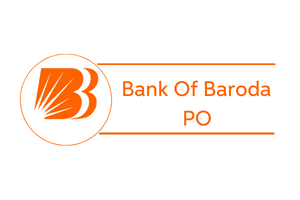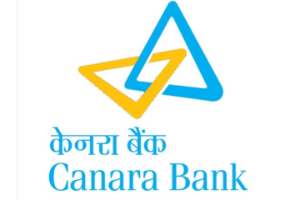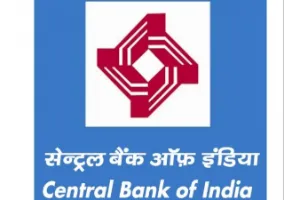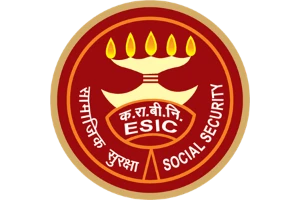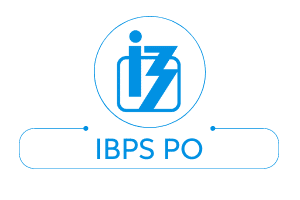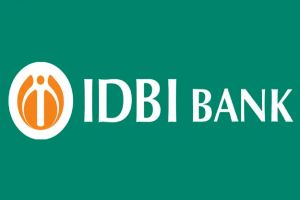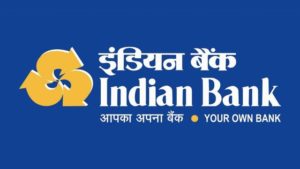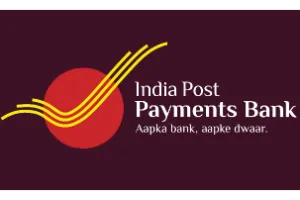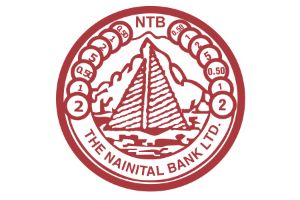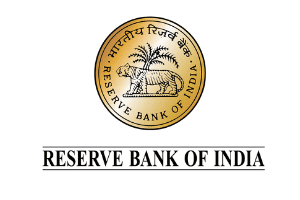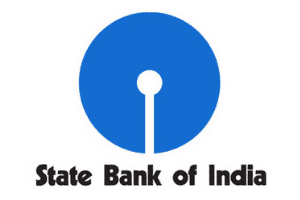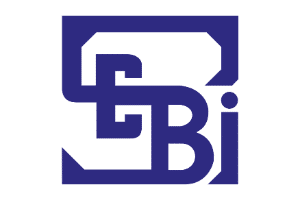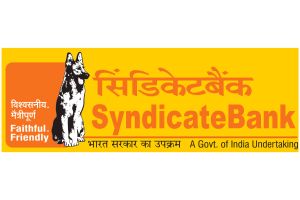Banking exams
Banking Exams in India are conducted by private, public sector and regional banks including authorities like IBPS. The recruitment of the candidates is conducted through Preliminary exam, Mains exam and a final interview.
Earn for every question answered
Detailed Guide: Top Banking Exams in India 2023
Table of Contents
In India, banking has been considered one of the most pursued professional paths for decades. Every year, thousands of aspirants take bank exams like IBPS Clerk, IBPS PO, IBPS RRB, RBI Grade, SBI PO, etc., to land a job at one of the nation’s reputable banks. These bank examinations are held annually at a national level. Candidates who wish to pursue a profession in banking should be aware of all banking tests and begin preparing. The complete list of all upcoming bank exams can be found here.
Every year public sector banks and private sector banks conduct various banking exams. These exams are conducted once or twice a year. The exam-conducting authorities are different for different types of banks. Although, recruitment for most national public banks, exams are conducted by an autonomous body IBPS (Institute of Banking Personnel Selection). IBPS comes under the Ministry of Finance and conducts recruitment exams for various regional rural banks, cooperative banks, and a few private banks such as South Indian Bank. SBI is the only large public sector bank that conducts its exam itself
Multiple exam stages are included in the selection process for bank employment –
- Preliminary Exam,
- Mains Exam,
- Personal Interviews, and
- Document Verification.
Bank positions come with good pay, job security, allowances (DA, HRA, medical, travel, etc.), and benefits. All of these perks motivate people to apply for banks. Candidates interested in working in the financial sector have excellent career prospects. Numerous regional and public sector banks in India hire thousands of individuals through various banking exams for positions such as:
- Clerk
- Probationary Officer (PO)
- Specialist Officer (SO)
- Assistant Manager
- Manager
- Chief Manager
Candidates must have graduated from a recognized university in any discipline to qualify for the various banking exams. After completing graduation, candidates can apply for banking exams.
Also read about other Upcoming Govt Exams 2023
List of Banking Exams in India
IBPS
IBPS (Institute of banking personnel selection) was established in 1975. It is an autonomous body responsible for recruiting banking personnel for national and public sector banks. When the banks were nationalized, there was no proper system of recruitment for the candidates, after which, IBPS was established. IBPS helps in the recruitment of candidates in all government banks except SBI. The governing body of IBPS involves the nominees from RBI, the Ministry of finance of Govt. Of India, IIT Mumbai, and other esteemed financial institutions.
When IBPS conducts exams, candidates can choose the bank they want to apply to. Banks that participate with IBPS in conducting various exams are:
- Bank of Baroda
- Indian Overseas Bank
- Bank of India
- Punjab National Bank
- Bank of Maharashtra
- Punjab and Sind Bank
- Canara Bank
- UCO Bank
- Central Bank of India
- Union Bank of India
- Indian Bank
IBPS conducts most of its exams in two phases- preliminary and main. Most of the banking exams of IBPS also have interviews.
IBPS PO
IBPS PO is a national-level exam conducted online, and the recruitment process includes,
- Preliminary exam
- Mains exam
- Interview
Candidates wishing to apply should have a Bachelor’s degree from an accredited university or its equivalent in any discipline.
The IBPS PO Exam syllabus includes a general examination of the candidate’s logical and general knowledge. The IBPS PO (probationary officer) exam syllabus covers many subjects such as
- Reasoning,
- Quantitative aptitude, and
- General awareness.
The exam syllabus varies in terms of the degree of difficulty for each phase.
Salary – INR 57289 per month
IBPS SO
To fill positions with several Public Sector Banks, the Institute of Banking Personnel Selection (IBPS) holds an IBPS Specialist Officer Recruitment.
The positions for which vacancies are released:
- Rajbhasha Adhikari Scale I
- Marketing Officer (Scale I)
- HR/Personnel Officer
- Agriculture Field Officer
- IT Officer Scale I
- Law Officer
The recruitment process includes,
- Preliminary Exam
- Main Exam
- Interview
Salary – INR 38000 – INR 39000 per month
IBPS RRB
IBPS holds an annual national banking exam called the IBPS RRB for applicants who wish to work for the Regional Rural Banks. Around 43 RRB banks participate in the recruitment process.
IBPS RRB Scale 2
Every year, all of the participating Regional Rural Banks (RRBs) in the nation issue invitations to banking hopefuls who want to apply for IBPS RRB Officers Scale II positions. The exam is responsible for recruitment for Treasury, Marketing, Agriculture Officer, and Information Technology positions. The selection phase includes:
- Preliminary Exam
- Mains Exam
- Interview
Candidates must be over 21 and under 32 years to sit for the exam.
Subjects:
- Reasoning Paper
- General Awareness Paper
- Numerical Ability Paper
- English/Hindi Language Paper
- Computer Knowledge
Positions offered are:
- Branch Management
- Loan Processing
- Business Development
- Relationship Management
- Risk Management
Salary – INR 75000 – INR 77000 per month
IBPS RRB Scale 3
IBPS RRB Scale 3 is a national-level banking exam. The exam conducts Group A and B employment and takes place for the recruitment of Senior Managers
The applicants who wish to work for RRBs must check the selection criteria:
- Single level Exam
- Interview
An applicant’s age should range from 21 to 40 years old.
Salary – INR 75000 – INR 90000 per month
IBPS RRB Clerk
An IBPS RRB Clerk is responsible for updating account holders’ passbooks. Accountable for keys, various critical documents, and bank currency. Demand draught (DD) issuance, customer bank accounts, cash receipts, etc.
The exam is conducted in two stages:
- Preliminary Exam
- Mains Exam
The age limit that candidates must possess must be in the range of 18 to 28 years.
Subjects:
- Reasoning Paper
- Numerical Ability
- Computer Knowledge
- English/ Hindi
- General Awareness
There won’t be any interviews to choose candidates for the position of office assistant. Selection will be based solely on the candidate’s performance in the Main Examination.
Position – Clerical
Salary – INR 21000 – 23000 per month
IBPS RRB PO
IBPS conducts the IBPS RRB PO Exam each year to select candidates for the positions of Assistant and Officer Cadre in the Regional Rural Banks (RRBs) located around the nation. Selected candidates will be responsible for various office duties, including passbook printing, account opening, fund/balance transfers, cash transactions, payment withdrawals, and cash counter administration.
The exam is conducted into three phases:
- Preliminary Exam
- Mains Exam
- Interview
IBPS RRB Assistant and IBPS RRB Officers have nearly identical syllabuses for IBPS RRB 2023. A professional knowledge portion is also required for the Specialist Officer Grade II, in addition to the sections listed below.
The subjects evaluated for prelims and mains exam includes
- Reasoning,
- General Awareness,
- Numerical Ability,
- English,
- Hindi,
- Computer Knowledge
To qualify in interview, applicants for the position of PO at any given RRB must be fluent in the language of the State or UT where the RRB is located.
Salary – INR 36000 per month
SBI Recruitment Exam
SBI is the largest Indian multinational bank and ranks 43 on the world’s largest banks list. It is a national public sector bank and holds 23% of the market share. SBI was established as the Bank of Calcutta in 1806. Therefore, it is the oldest bank in the Indian subcontinent. Over the years, various banks merged into it. Thus, SBI became the largest bank in the country. And today, every city or town has one branch of the bank. Furthermore, SBI has a great customer network across India and abroad.
- State Bank of India has more than 10 foreign subsidiaries. some of them are, Australia SBI, Nigeria SBI, China SBI
- It also has non-banking subsidiaries such as SBI capital market, SBI Life insurance company limited
- The current governing body of SBI consists of Mr. Dinesh Kumar Khara as the Chairman of the board.
- SBI has 4 managing directors and 8 directors. It is a government-owned co-operation.
- The SBI headquarters is in Mumbai.
SBI has a huge presence in India and the Indian sub-continent as one of the largest government-owned banks in India. Furthermore, SBI conducts its own SBI Recruitment exams. Due to the widespread presence of the bank, SBI is the most known bank in the country. Every year, lacs of candidates apply for various positions and posts. SBI conducts banking exams for positions like clerks, PO/MT, SO, and circle officers. Out of these, exams for PO, SO, and clerks are conducted once every year. The State Bank of India has a separate examination system. Their pay scale is also better than IBPS banks.
It has 6 Apex Training Institutes and 51 State bank institutes of learning and development spread all across the country. These apex training centers provide special training in leadership, human resources, marketing, etc.
SBI PO
SBI conducts the SBI PO bank examination each year to choose candidates for the Probationary Officer (PO) position. Responsible for assisting in the issue of ATM Cards, Cheque books, and Demand Drafts, handling and addressing customer queries, looking into complaints regarding bank services, and rectifying undue charges & discrepancies in accounts.
The exam is conducted in three phases:
- Preliminary Exam
- Mains Exam
- Interview
Objective-type questions, such as multiple-choice questions (MCQs), are included in the SBI PO Prelims and Mains tests.
The applying candidate must be in the age range of 21 years to 30 years.
Subjects:
- English Language
- Numerical Ability
- Reasoning Ability
The selected candidate will have to undergo a training period of 6 months.
SBI SO
Candidates who desire to serve as SBI specialized officers in a variety of sectors, including law, customer service, engineering, etc., are eligible to apply for this exam. Recruitment for Deputy manager, Chief officer, Data Analyst.
Selection Process:
- Online Test
- Interview
The applying candidate must have working experience of 2 years as a Graduate and 1 year as a Postgraduate.
To be eligible to take part in the hiring process, an applicant must fulfil all of the requirements listed under the eligibility criteria. The SBI SO eligibility for 2023 differs depending on the position, so applicants should read it carefully
SBI Clerk
The SBI Clerks are in charge of opening bank accounts, managing NEFT/RTGS transactions, issuing demand draughts, issuing bank statements, transferring money using various payment methods, handling requests for cheque books, etc. Responsible to looking after the transactions related to the NEFT/RTGS, open the bank accounts, etc.
To understand the test process, candidates must be fully aware with the SBI Clerk exam pattern 2023. The SBI Clerk Prelims and Main test formats differ in a key way. To help applicants adequately prepare for the exam, the SBI Clerk exam pattern includes information about the total number of points and exam length. Candidates can successfully plan their exam preparation and start on the path to brilliance. Check out the comprehensive SBI Clerk exam pattern for the preliminary and main exams, then start preparing for the test.
Bank of Baroda Recruitment
BOB PO
Bank of Baroda is the Indian nationalized bank that recruits candidates every year. BOB releases the online BOB probationary officer exam for applicants who desire to work in the banking industry. This exam mainly focuses on recruiting officer for the junior management grade. The purpose of the Bank of Baroda PO syllabus is to evaluate candidates’ abilities, knowledge, and aptitude for a career in banking. The following subjects are normally covered syllabus:
- Reasoning Ability
- Quantitative Aptitude
- English
- General Awareness
- Computer awareness
Perks and benefits apart from salary:
- Transportation Allowance
- Medical Insurance
- DA
- Compensatory Allowance
- Good Work Environment
- HRA
The age limit required for application is between 21 years – 30 years.
Position – Probationary Officer Salary – INR 28321 – INR 33986 per month
BOB SO
BOB recruits various professionals for the banking field every year. It is advised that the aspirants must comprehend the BOB SO exam format, syllabus, and the caliber of the exam’s questions.
The exam is conducted in three phases:
- Online test
- Group discussion
- Interview
BOB SO Salary levels
- Specialist Officer at Scale 1 level – INR 42990 per month
- MMGS II Salary – INR 69180 per month
- MMGS III Salary – 78230 per month
- SMG/S – IV Salary – 89890 per month
Canara Bank PO
Canara Bank was founded by Shri Ammembal Subba Rao Pai in the year 1906. He was a brilliant thinker who founded the Bank in Mangalore, Karnataka which is well known for its emphasis on the needs of its customers. The exam for Canara Bank PO is conducted in two stages –
- Online Exam (Online)
- Group discussion & Personal Interview (Offline)
Educational Qualification –
- Candidates for the general category must have graduated with at least 60% of their class from an authorized university with a degree in any discipline.
- A designated category, such as SC, ST, or PWD, requires 55% of the highest grades from any accredited institution or university, or essentially comparable marks.
Salary – INR 40239 per month
Indian Bank PO
Indian Bank was established on 05th March 1907. The bank was able to raise a sum of Rs 20 lakh as authorized capital, and it commenced its business from 15th August 1907.
Thousands of applicants apply every year for this exam and the selection process includes:
- Online Test
- Interview
Age requirement for Indian Bank PO is between 20 years to 28 years.
Eligibility conditions:
- Applicants must possess a bachelor’s degree from an authorized university or institution with a minimum overall GPA of 55% (or 50% for SC/ST applicants).
- Indian citizenship is required for the position.
The subjects that students need to be well-versed with include,
- Reasoning
- English
- Quantitative Aptitude
- General Awareness
- Computer Knowledge
Salary – INR 23700 per month
Syndicate Bank PO
Syndicate Bank was one of the largest and well-known banks in India. After the merger of Canara Bank with Syndicate Bank, Canara Bank is now the parent company of Syndicate Bank. The bank exam – Syndicate Bank PO is a nationwide exam to hire PO Officers.
JK Bank PO
J&K Bank was Incorporated in the year 1938. Jammu and Kashmir Bank is one of India’s oldest private sector banks and a Scheduled Commercial Bank.
Selection process:
- Preliminary,
- Main, and
- Interview round
Candidates must pass the JK Bank PO Prelims Exam to qualify for the Mains Exam. The Prelims and Mains exams are both given online and have questions of this nature. The personality test/interview round is the last step in the JK Bank PO Recruitment selection process.
Position – Probationary Officer
Salary – INR 36000 – INR 38000 per month
Federal bank PO
Federal Bank has been into existing in India before independence. The Travancore Federal Bank Limited was established on 23rd April 1931 in Nedumpuram. The bank works by the Travancore Companies Regulation, 1916. The name of the bank was changed its name to The Federal Bank Limited in December 1949 under the direction of Late K.P.
Eligibility Criteria:
- Candidates must be a citizen of India.
- To be eligible to apply for the selection process, candidates must not be older than 27 years.
Candidates must check out the official website for detailed information.
Position – Federal Bank Probationary Officer
Salary – INR 65500 per month
NABARD Grade A & NABARD Grade B
With its headquarters in Mumbai and branches nationwide, the National Bank for Agriculture and Rural Development (NABARD) is a significant financial organization supporting development in India.
The National Bank for Agriculture and Rural Development’s primary goal is to provide agricultural and other economic strategies, operations, and planning that are tailored to the needs of India’s rural areas.
The NABARD conducts the NABARD Grade A Exam to hire Assistant Managers and Grade B Exam to hire managers. NABARD meets the requirements of the rural community by giving them the loans they require for agricultural purposes. The government of India holds a 100 per cent ownership stake in NABARD.
One must meet the eligibility requirements established by the responsible body to register for the NABARD Grade A examination. To understand better, the selection process includes:
- Preliminary Exam
- Mains Exam
- Interview
For applying to NABARD Grade A, applicants must be in the age range of 21 years to 30 years. And for NABARD Grade B, applicants must be in the age range of 25 years to 35 years.
NABARD Grade A Officer Salary – INR 44500 per month
NABARD Grade B Salary – INR 35150 per month
LIC ADO and LIC AAO
Life Insurance Corporation, or LIC is a state-owned insurance and investment organization in India.
Selection process:
- Preliminary
- Mains
- Interview
The exam takes place in two phases which is inclusive of Prelims and Mains Exam. Subjects included in the exam are:
- Reasoning ability
- Numerical ability
- English Language
- Insurance and Financial Market Awareness
The exam is conducted in various exam centres across India.
LIC ADO Salary– INR 21,865 per month
LIC AAO Salary – INR 53,600 per month
Candidates for the LIC Recruitment 2023 must hold a bachelor’s degree in any discipline from a university that the Indian government has approved. The Life Insurance Corporation (LIC) also conducts LIC HFL (Life Insurance Corporation Housing Finance Limited) recruiting to find people for Associate, Assistant, and Assistant Manager positions.
NIACL Recruitment
The New India Assurance Company Limited (NIACL) recruits’ candidates for a variety of positions within the company. NIACL is one of the biggest insurance providers in the nation with locations all over the world. New India Assurance Company Limited is a Public Sector General Insurance Company established in 1919 by Sir Dorabji Tata with its headquarters in Mumbai. The New India Assurance Company Limited exam is a national-level test to fill openings in the organization’s numerous branches across the country.
Selection process:
- Prelims
- Mains
- Interview
The candidate must be between 21 to 30 years old. The applying candidate must be a Graduate/Postgraduate. Apart from the lucrative salary, the employees are also entitled to various perks and allowances.
NIACL AO Salary: INR 51,000 per month
NIACL Assistant Salary: – INR 23,500 per month
RBI Exam
RBI is the regulatory body and central bank of the country and falls under the jurisdiction of the Ministry of Finance. It manages the country’s main payment system and aims to work toward the country’s development. Established in 1939, RBI became a nationalized body after independence. The board of RBI consists of 12 directors, governors, and four deputy governors. The economic affairs secretary and the financial service secretary act as the Ministry of Finance representatives and are also the board members. They also have representatives of Delhi, Mumbai, Chennai, and Kolkata boards.
Reserve Bank of India has many divisions. Each of these divisions has its set of responsibilities. RBI provides financial direction to the country and consultation with the finance ministry. RBI is a massive organization. Therefore, it holds its recruitment processes and conducts different banking exams for different positions.
RBI Assistant
RBI Assistant Exam is conducted to recruit candidates into the Assistant cadre for handling day-to-day operations and Clerical duties of the bank. The selection process for bank includes:
- Preliminary Examination
- Mains Examination
- Language Proficiency Test
Subjects:
- English Language
- Numerical ability
- Computer awareness
- General awareness
- Quantitative aptitude
Candidates must be between the ages of 20 and 28 and possess a graduate degree with a minimum cumulative GPA of 50% to be considered for RBI Assistant role. Only those candidates who meet the qualifying requirements will be permitted to move forward. Failure to meet the eligibility standards by a student will result in immediate disqualification.
RBI Assistant Salary – INR 45050 per month
RBI Grade B Officer
Reserve Bank of India published the RBI Grade B Notification to find qualified applicants for the Grade B, DEPR, and DSIM Posts. RBI Grade B exam is for recruitment for the Department of Economic Policy and Research (DEPR), General Cadre, and Department of Statistics and Information Management(DISM)
The age restrictions for candidates applying for RBI Grade B are listed below:
- Minimum – 21 years
- Maximum – 30 years
The three stages of the RBI Grade B selection procedure are:
- Phase I
- Phase II
- Interview
Phase I – English language, numeric ability, reasoning, and general awareness objective-type questions.
Phase II – Three papers make up Phase II, covering finance and management, English writing abilities, and economic and social topics.
Candidates are subsequently contacted for the Interview stage if they pass Phase II. Candidates can improve their exam preparation and success rates by solidly understanding the RBI Grade B selection procedure.
RBI Grade B officer Salary – INR 80000 per month
SEBI Grade A
In compliance with the terms of the Securities and Exchange Board of India Act, 1992, the Securities and Exchange Board of India was founded on 12th April 1992. SEBI is a reputable body that safeguards the interests of stockholders and controls the securities market. SEBI has published a notification inviting nationwide applications for openings at SEBI Grade A Officer positions.
The selection process is based on three phases:
- Phase I
- Phase II
- Interview round
The maximum age limit prescribed for the role is 30 years.
SEBI Grade A Salary – INR 44500 per month
South Indian Bank Clerk and South Indian Bank PO
South Indian Bank is the first private sector bank in Kerala to be designated as a scheduled bank under the RBI Act in 1946. In April 1992, the bank in India’s private sector opened a currency chest on behalf of the RBI. In November 1992, the private sector bank opened a branch for NRI customers.
There are two steps in the selection process:
- Online examination
- Individual interview
Those who completed the online test are invited to participate in the next stage, which involves personal interviews.
Subjects:
- Reasoning and Computer Aptitude
- General Awareness (Economy/Banking/Finance)
- English Language
- Data Interpretation and Analysis
South Indian Bank Clerk Salary – INR 17,900 – INR 47,920
South Indian Bank Probationary Officer Salary – INR 36000 per month
IDBI Recruitment
The Industrial Development Bank of India is a development finance organization that offers financial services to the industrial sector. It was renamed as IDBI Bank Limited in 1964. Furthermore, the Indian private sector bank IDBI Bank is a division of Life Insurance Corporation. The Industrial Development Bank of India (IDBI) hires qualified individuals for a range of positions, and this year executive positions are expected to be filled via an online test and document verification.
Types of IDBI Exams
IDBI Exam Name | Purpose of the exam | Stages of the exam |
Responsible for updating changes, transfer of funds, contact details, cheque clearance, clearing of bank suspense account, etc. |
| |
IDBI Assistant Manager | Manage all the financial work like reaching out to the customers, loan-related work, recovery of loans from defaulters, etc. |
|
ESIC Recruitment
Employees State Insurance Corporation is known as ESIC. ESIC administers a nationwide entrance exam for the positions of clerk, UDC, paramedical, MTS, and stenographer. To offer social security and health insurance for Indian workers, ESIC was founded in 1952.
ESIC’s corporate headquarters are in New Delhi. According to the openings identified by the admission exam, ESIC makes hiring decisions. However, walk-in interviews are used to fill some positions immediately. ESIC has published a notification for the hiring of 6552 Group “C” positions, including stenographer and UDC (upper division clerk). However, the official announcement will be made in this year’s March or April (tentatively).
Read about ESIC Recruitment
Types of ESIC Exam
ESIC Exam Name | Purpose of the exam | Stages of the exam |
ESIC UDC | Recruitment for Group C UDC (Upper Division Clerk) or Clerk-Cashier. |
|
ESIC Stenographer | Recruitment for Grade C Stenographer. |
|
Banking Exams Preparation Tips
Millions of people take various banking tests each year depending on the number of openings. The top ten preparation tips include:
- Prepare a schedule – Make a schedule that is devoted the 7 to 8 hours of the days in studying.
- Cover the entire syllabus – Before 2 – 3 months of the exams try to complete the entire syllabus and spare the remaining months for revision.
- Stay updated – Keep checking the official website of the applied exam to stay updated and not to miss on any important update.
- Continuous practice – Practice at least 6 days a week for the exam so that you can derive the best from yourself.
- Previous years’ paper analysis – Look for past papers on the commission’s official website. Take some time to analyze the papers and see what type of questions were asked and the weightage of each question.
- Attempting mock tests – Look for online mock tests which are available for free by various website. Attempt a mock test at the end of every week to understand where you stand.
- Self-made notes – At the time of studying keep a separate notebook for preparing short notes. These notes will be found helpful at the time of revision before the exam.
- Revision before exams – Revision before exams is mandatory. It brushes up all the things read in the entire year and brings a shine to it.
- Healthy plans – Build a healthy lifestyle. Take ample amount of sleep and a proper diet will make the body and the mind healthy.
- Eliminate overstudying – Do not dedicate whole year by continuously studying. Taking short breaks, talking to friends, going out for a walk, etc. is important to refresh the mind. Stress free will lead to catch more easily.
Students must build a healthy lifestyle and follow the preparation tips. Following the tips and building a strategy will help the candidates a lot to clear the exam.
Banking Exam Books
In India, lakhs of candidates every year apply for the banking exams. Banking exams receive many applications because it provides a lucrative career in various public sector banks. Books play an important role in bank exam preparations. To clear the exams easily candidates need to refer to quality books and a dedicated preparation strategy. Here is the list of most referred books by banking aspirants:
Sl no. | Book Name | Author |
1. | Better English | Norman Lewis |
2. | A Modern Approach to Verbal & Non-Verbal Reasoning | R.S. Aggarwal |
3. | Magical Book on Quicker Math | M Tyra |
4. | How to Crack Test of Reasoning | Jaikishan and Premkishan |
5. | Descriptive General English | SP Bakshi and Richa Sharma |
6. | Economic Survey | Government of India Ministry of Finance |
7. | Computer Awareness | Arihant Publications |
8. | Data Interpretation – Magical Books Series | K. Kundan |
9. | Static General Knowledge | Arihant Publications |
10. | Banking & Financial Awareness | Kiran’s Publication |
Above mentioned are the ten most preferred books by the passing candidates. These books have helped candidates clear their exams quickly and made their understanding of the concept far better. Aspirants who are willing to clear the exam in their first attempt along with their preparation must follow these highly effective books.
Why Banking Exams?
Today, banking activities also have a bigger societal impact. The banking industry is the most alluring to young graduates in our nation because of its benefits and job security. If you are thinking about pursuing a career in finance, but still stuck at your decision? There are several reasons for choosing banking exams as it provides ample growth opportunities. Students having keen interest in banking field must go ahead and read the benefits of opting banking as a career.
The top ten reasons for choosing the banking industry as a career are listed below.
- Secure and Reliable Industry – One of the main benefits of choosing the banking industry is job security. The stability and security of the financial sector rank among the most important benefits of a job in banking. The issue of job security has always been more important in the public sector. Banks are crucial organizations at the center of the world economy, and they are not going to go away any time soon. Individuals who perform poorly also experience this. With a respectable salary, your career and future are secure.
- High Demand for Professionals with Skills – The strong need for qualified experts is another compelling reason to think about a career in finance. The work in the banking industry is highly regarded. Professionals with a variety of talents, such as finance, accounting, marketing, customer service, and operations, are needed in banks. Banks also need employees who can adjust to new technologies and shifting market conditions as the sector develops and changes. If you work for a bank, you gain social status. The candidates are entitled to a high-profile position that is prestigious and will treat them with the highest respect.
- Competitive Benefits and Salaries – The opportunity for high pay and benefits is another important benefit of working in banking. The compensation is the best incentive to work in any industry. In order to attract and keep the best personnel in the highly competitive banking industry, banks must pay their employees adequately. In comparison to many other industries, the banking sector often offers better salaries as well as the possibility of receiving bonuses and other financial incentives.
- Opportunities for Growth – There is no limit of career growth after joining the banking sector. There’s a famous saying “The sky is the limit” which best fits with the growth of an individual in the banking field. There are several prospects for advancement in the financial sector. Employees can move up the ranks in banks’ usual hierarchical structures by taking on additional responsibility and showcasing their abilities.
- Work-Life Balance – The chance for a healthy work-life balance is another benefit of working in banking. Although the banking sector can be demanding, many banks provide flexible work schedules to help workers balance their personal and professional life. This can involve job sharing flexible work schedules, arrangements, and telecommuting.
- Global Possibilities – A career in banking is a great alternative for those looking for worldwide prospects because it is pervasive and present in practically every nation on the planet. There are many opportunities to work with foreign clients or abroad, making it a great way to broaden your horizons and earn invaluable experience.
- Numerous Positions and Specializations – Because banking is widespread and present in almost every country on the earth, it is a perfect solution for anyone looking for global opportunities. It’s a fantastic approach to extend your horizons and get priceless experience because there are many options to work with foreign clients or abroad.
- Job Contentment – Job happiness is a highly personal matter that varies from person to person. It can be exciting and fulfilling to work in banking. Bank personnel can have a significant impact on people’s financial destiny, and banks are essential to the economy. The banking industry, however, presents the opportunity to assist people with their financial concerns as it is an interaction-based employment. Additionally, there are several chances to collaborate on fascinating projects and join a group that promotes innovation and change. Aside from that, a bank has a generally positive work environment.
- Create a positive impact in society – Working in banking can be a fantastic way to make a difference in society. The foundation of any nation’s economy is its banks. Banks offer crucial services, like lending and investment, that assist people and businesses in reaching their financial objectives. Additionally, banks have the potential to be extremely important in fostering economic development. The financial situation is completely dependent on banks, especially when it comes to building a nation like India.
- Paid leaves and holidays – The banking industry provides its employees with a wide range of incentives and benefits. Compared to private organizations, banks provide a reasonable number of holidays, allowing staff members to enjoy every holiday with their families. Banks also offer maternity and paternity leaves, making it simpler for staff members to care for their families. By doing this, you will be able to spend every holiday with your family and keep a healthy balance between your business and personal life.
The most frequent question that arises in the mind of students is “Why to join the banking sector?”. A career in banking provides a wide range of prospects as well as the chance for quick, professional advancement. Pay is competitive, along with additional benefits like perks that can be obtained from the Clerical level up to the General Manager level.
FAQs About Banking Exams in India
Studying for banking exams requires dedication and continuous efforts. Aspirants must regularly practice and read about everyday current affairs. Below mentioned are some important subjects to study for the banking exams in India:
- English
- Quantitative Ability
- Reasoning Ability
- Numeracy
- GK and Current Affairs
- Logic and Aptitude.
Apart from this, in some exams, economics, statistics, and national and international banking rules are also included. The level of questions may differ based on different grades and posts.
In India, there are majorly three types of banking exams. This division is based on the exam authorities as mentioned below:
- IBPS
- SBI
- RBI
IBPS conducts various exams for national public sector banks. All the government banks take part in the IBPS exams. However, SBI and RBI conduct exams separately to recruit their employees.
Some of the banking exams are annual like IBPS and SBI. That means the exam body conducts these exams once every year. Whereas few of these exams are vacancy-based. Therefore these are conducted only if a vacancy arrives.
Banking exams have a moderate to high difficulty level in India. Candidates appearing for Banking exams in India are required to prepare for these exams rigorously as lakhs of aspirants take these exams for a few vacancies. Hence, the exams are tougher to crack. All candidates are advised to prepare for these banking exams a year or two in advance so that they can get enough time for preparation and practice. Good preparation and determination can help candidates clear even the toughest of banking exams.
As per the current data, PO salaries are highly competitive across Indian banks. However, SBI offers the best salary package for personnel at PO positions. It has a good incentive package and opportunities for future growth. Therefore, it is the most sought after post in government banking.
Yes, SBI consists of training centers across the country. There are 6 Apex Training Institutes and 51 SBILD all over the country. These centers train recruits while helping them learn new technology and courses in human resources, marketing, etc.
RBI Grade B is considered to be one of the toughest banking exams in India. The interview process is also a very crucial part of selection. Moreover, as there are limited vacancies for the exam hence, it gets tougher to crack the RBI exam.
SBI is the largest bank in India. It is the 43rd largest bank in the world and also consists of many foreign subsidiaries.
No, not all banking exams have interviews. This depends upon the grade of the exam. Hence, candidates may or may not have to face an interview.
Few private banks take the services of IBPS for recruitment. IBPS conducts banking exams for them. It may also train the senior staff of the bank regarding conducting interviews. For example, IBPS conducts PO exams for South Indian Bank. It is also one of the largest private banks in India.
